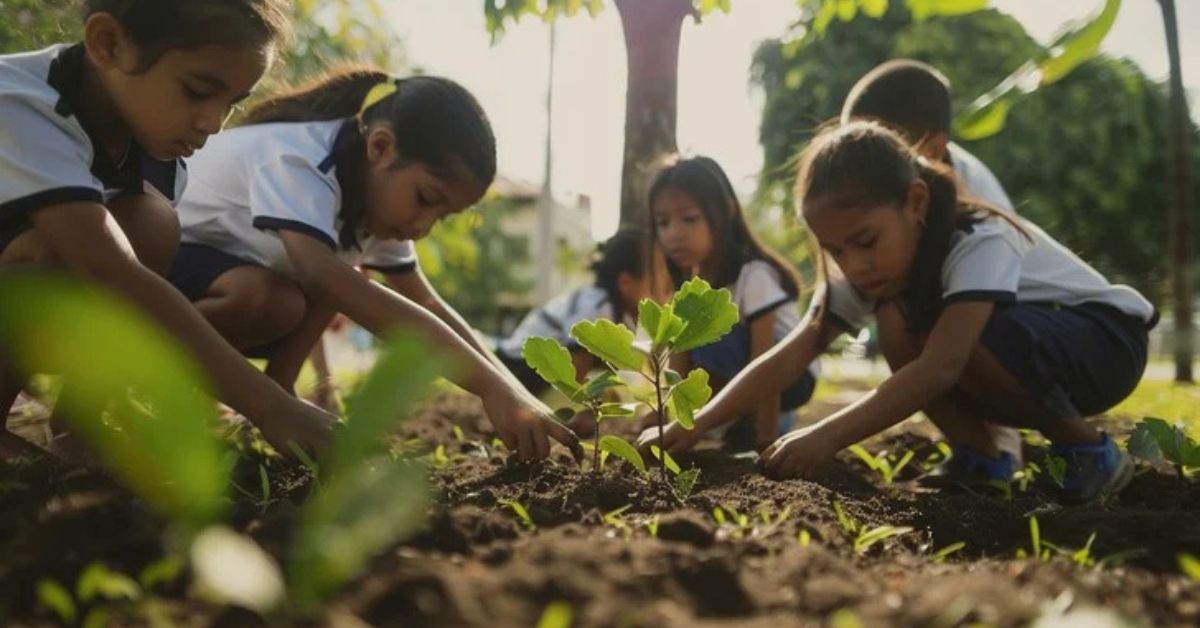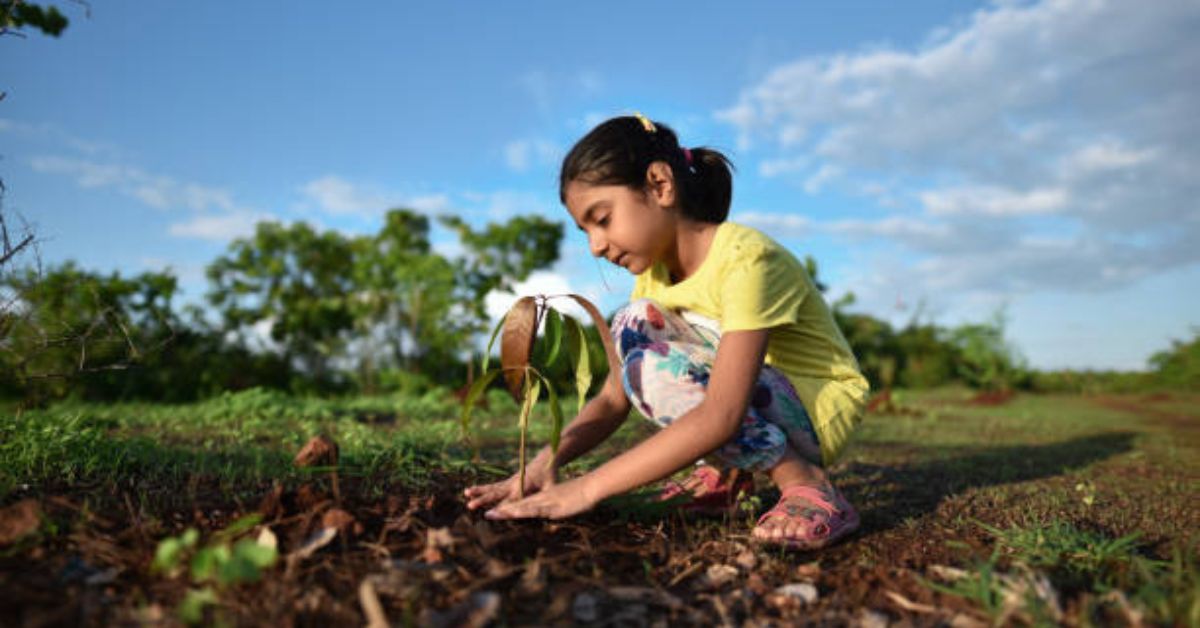When you’ve ever seen a baby cradle a fallen leaf prefer it’s a treasure, you already know that children and nature share a quiet, magical bond. However in at present’s world of screens, indoor routines, and digital distractions, this connection is fading quick. One of many easiest methods to convey it again? A handful of soil, a pot, and a curious little human.
Gardening isn’t nearly rising issues. It’s about slowing down, observing life, and studying easy methods to care. And when youngsters dig into the filth, they’re not simply planting seeds; they’re planting empathy, endurance, and duty.
Gardening teaches youngsters to look after one thing past themselves
When a baby vegetation a sapling and waters it on daily basis, they’re doing extra than simply following directions. They’re studying that residing issues want care, consideration, and time. Watching a tiny seedling develop right into a wholesome plant makes them realise their actions have an effect, that their love, endurance, and energy matter.
Over time, this constant routine builds a way of duty. Miss a number of days of watering, and the wilted plant reveals why exhibiting up issues.
They be taught that development takes time
In a world of instantaneous gratification, vegetation are a refreshing change. You don’t plant a tomato seed at present and get a sandwich tomorrow. Gardening nudges youngsters to be affected person. To water a sprout with out seeing it bloom but helps them to construct belief that one thing which one can’t see is occurring, however nonetheless is taking a type underneath the soil.
This gradual unfolding helps youngsters respect pure timelines, and never only for vegetation. They start to know that every part in life (friendships, expertise, even therapeutic) takes time to develop.
Nature turns into a good friend, not a stranger
As soon as a baby begins gardening, their relationship with nature modifications. Ladybugs are now not scary; they’re useful. Earthworms change into fascinating as a substitute of icky. Rain turns into thrilling as a result of it means the backyard will get watered.
All of a sudden, nature isn’t simply ‘exterior’. It’s private. It’s the place their marigold bloomed, the place they noticed their first butterfly land. And when youngsters join personally with nature, they’re extra more likely to care in regards to the planet in the long term, not as a result of somebody instructed them to, however as a result of they wish to.
Gardening builds emotional resilience
Imagine it or not, gardening may help youngsters address disappointment and uncertainty. Typically a seed doesn’t sprout. Or a plant they’ve nurtured for weeks will get eaten by snails. Whereas that may be heartbreaking, it’s additionally an necessary life lesson.
Commercial

They be taught that not every part is of their management, that some issues go unsuitable, and it’s okay to really feel unhappy after which attempt once more. In that manner, gardening turns into a mild trainer of emotional resilience.
It’s a quiet house for pleasure, focus, and reflection
Not each youngster loves high-energy actions. For some, gardening gives a protected, quiet house the place they’ll focus, get their arms soiled, and simply be themselves. There’s no competitors, no efficiency strain. Simply delicate soil, curious bugs, and the enjoyment of watching one thing develop.
It’s particularly therapeutic for anxious or delicate youngsters who thrive in calm, sensory-rich environments.
Enjoyable gardening actions to get youngsters began
Don’t fear, you don’t want a yard or fancy instruments to get began. Listed below are a number of easy, enjoyable gardening concepts that may kickstart your youngster’s inexperienced journey:
1. Develop a tomato plant from kitchen scraps
Minimize the tomato, scoop out some seeds, dry them, and plant them in a small pot. It’s a good way to show that meals doesn’t come from a packet — it comes from soil, solar, and endurance.
Commercial
2. Make a ‘recycled pot backyard’
Use previous teacups, plastic bottles, or tin cans to make quirky little planters. Let your youngster adorn them with paints and stickers. Bonus: they’ll really feel extra connected to their plant when the pot feels private.

3. Create a butterfly nook
Plant flowers like marigolds, hibiscus, or milkweed to draw butterflies. Watching them flutter round is pure magic — and teaches youngsters about pollination and ecosystems with none textbooks.
4. Make a compost-in-a-bottle
Layer kitchen waste, leaves, and soil in a transparent bottle to present how decomposition works. It’s a science lesson disguised as a cool experiment.
Commercial
5. Give them a plant as a duty buddy
As an alternative of simply telling them to water your vegetation, give them their very own plant — one they title and look after. It turns into a good friend, a routine, and a tiny duty rolled into one.
Rising extra than simply vegetation
In the long run, gardening is about much more than greens or flowers. It’s about slowing down in a fast-paced world.
And for a kid, it’s an opportunity to construct kindness in a world that might use just a little extra of it. With each sprout, they’re not simply rising a plant — they’re rising part of themselves.
##QA-TP1##

